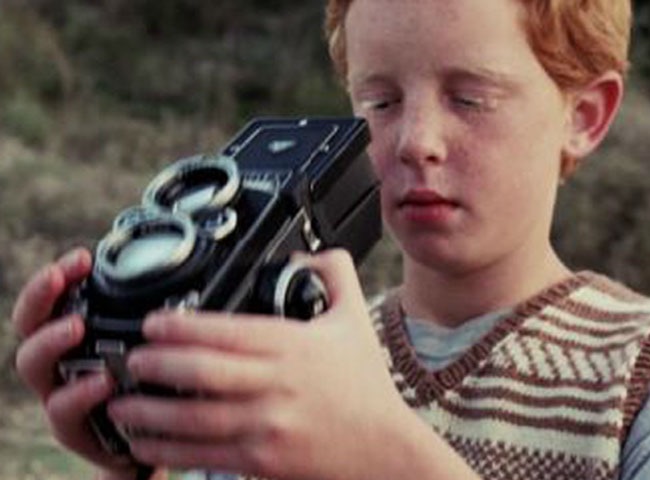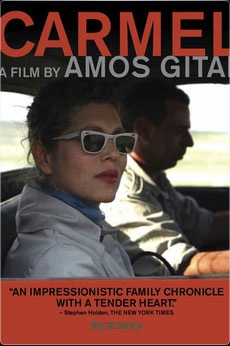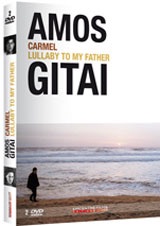Carmel
-
Réalisé par Amos Gitaï • Écrit par Amos Gitaï
-
France • 2009 • 93 minutes • 35 mm • Couleur
- Réalisation :
Amos Gitaï - Écriture :
Amos Gitaï - Image :
Stefano Falivene - Son :
Michel Kharat - Montage :
Isabelle Ingold
- Production (structure) :
Agav Films - Coproduction :
Global Média, Intereurop - Diffuseur :
ARTE France - Ayant droit :
Agav Films
- N° ISAN :
ISAN 0000-0003-40F2-0000-E-0000-0000-W
Résumé
Journal intime du cinéaste, réflexion sur la guerre et sur la transmission. Eléments autobiographiques, fictifs, archives personnelles et notamment de la correspondance de la mère du cinéaste. C'est un film ? "C’est un poème sur les gens. Ce qu'ils croient et ce qu'ils veulent. Et ce qu'ils croient vouloir. Même si peu nombreuses sont les choses sur cette terre qui méritent notre intérêt. Et c'est un poème sur ce que les hommes font. Car ce qu’ils font est plus important que ce qu’ils n’ont pas fait..." écrivait Nathan Zach dans un poème qui pourrait, peut-être, définir ainsi cet essai filmé.
"Amos Gitai's new film is made much in the mode of last year's extraordinary One Day You'll Understand. It is carefully composed and orchestrated, highly self-aware and sculpted from both collective and personal memories. In addition to being completely heartfelt and honest, it comes from the mind of a man who is not afraid to be critical. It hews to no positions and has no agenda, encapsulating the contradictions and complexities inherent to Israel and its history. Using Jeanne Moreau's voice as a kind of chorus - she recites texts and poems in voice-over - Gitai creates a kaleidoscope of images and associations from the distant Jewish past and the immediate Israeli present. Among the first images we see are centuries-old battles between Romans and Hebrews for the town of Jerusalem. The point is clear: this is a land that has seen much bloodletting. We are then transported to the present at an Israeli army encampment, where Gitai himself laments the "half truths and half lies" on television and the "endless war" that his son is now engaged in fighting. As Gitai grapples with this new reality and worries about the safety of his son - "It's not easy being a father in Israel these days," he says - the subversive punk-rock lyrics on the soundtrack underline his doubts about the current political situation. And as if in counterpoint to these ancient and modern wars, he introduces memories of his mother through letters, sounds and anecdotes, a mother who spent much of the sixties in London, learning English and attending plays. Carmel feels like a cinematic poem. Its sequences and incidents, though they are all carefully selected, are not designed to construct a linear narrative. It is as if order is not possible in the world he sees around him. Chaos is far more illuminating, be it in the glorious music of Gustav Mahler that bursts through the claustrophobic reality of people engaged in war or in an account of Gitai's personal exploits as a soldier shot down in a helicopter during the Yom Kippur War. Gitai has turned into a great chronicler of his country, and what he finds there these days is not a simple narrative." (Piers Handling
Mot(s)-clé(s) thématique(s)
Sélections et distinctions
- 2009 • Haifa International Film Festival • Haifa (Israël) •
- 2009 • Toronto International Film Festival (TIFF) • Toronto (Canada) • Sélection
Comment avoir accès au film ?
- Sortie en salle
- Édition DVD
- Accès VOD




